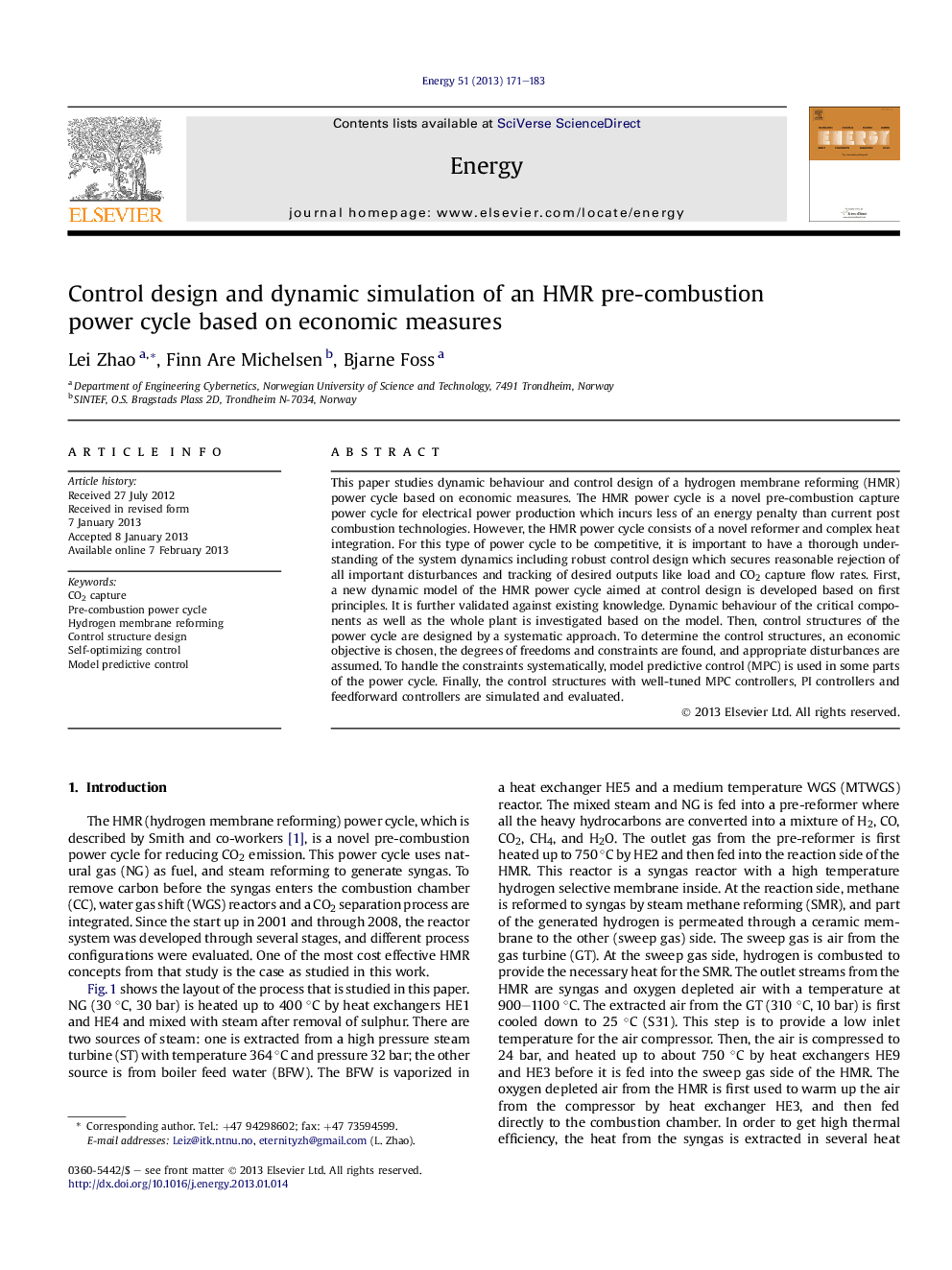| Article ID | Journal | Published Year | Pages | File Type |
|---|---|---|---|---|
| 1733170 | Energy | 2013 | 13 Pages |
This paper studies dynamic behaviour and control design of a hydrogen membrane reforming (HMR) power cycle based on economic measures. The HMR power cycle is a novel pre-combustion capture power cycle for electrical power production which incurs less of an energy penalty than current post combustion technologies. However, the HMR power cycle consists of a novel reformer and complex heat integration. For this type of power cycle to be competitive, it is important to have a thorough understanding of the system dynamics including robust control design which secures reasonable rejection of all important disturbances and tracking of desired outputs like load and CO2 capture flow rates. First, a new dynamic model of the HMR power cycle aimed at control design is developed based on first principles. It is further validated against existing knowledge. Dynamic behaviour of the critical components as well as the whole plant is investigated based on the model. Then, control structures of the power cycle are designed by a systematic approach. To determine the control structures, an economic objective is chosen, the degrees of freedoms and constraints are found, and appropriate disturbances are assumed. To handle the constraints systematically, model predictive control (MPC) is used in some parts of the power cycle. Finally, the control structures with well-tuned MPC controllers, PI controllers and feedforward controllers are simulated and evaluated.
► A new mathematical model of the HMR pre-combustion power cycles based on first principles is developed. ► The plant-wide control structures are designed by a systematic approach based on an economic objective. ► The control structures with well-tuned PI controllers and model predictive controllers are simulated and evaluated. ► The dynamic performance of relative complex pre-combustion power cycles can be well controlled by traditional controllers. ► The method is applicable as a systematic approach for control design of similar power cycles.
